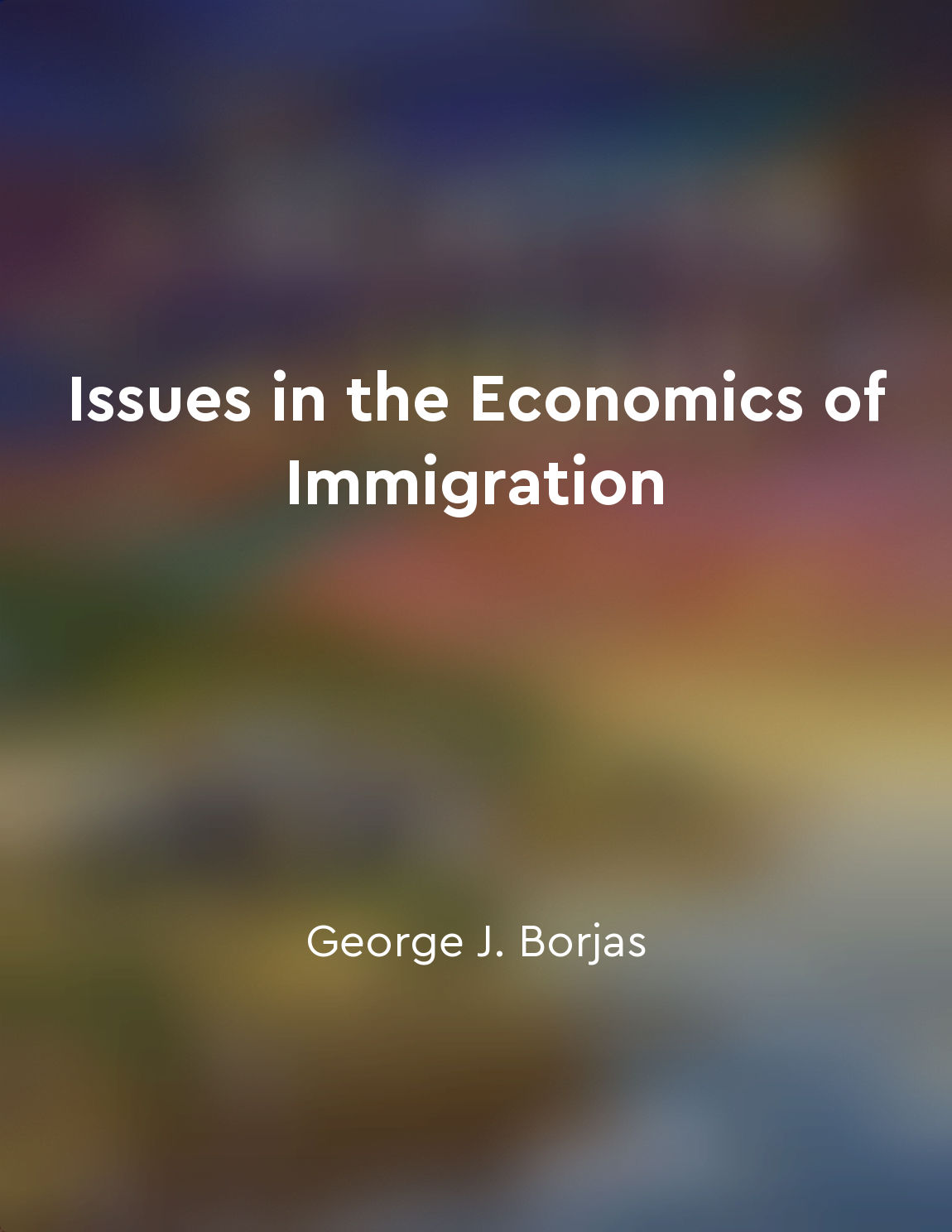Immigrants can have both positive and negative impacts on the economy from "summary" of Issues in the Economics of Immigration by George J. Borjas
George J. Borjas delves into the complex relationship between immigrants and the economy, highlighting that the impacts can be multifaceted. On one hand, immigrants can contribute to economic growth by filling labor shortages, increasing productivity, and stimulating innovation. By bringing diverse skills and ideas, they can help businesses expand and create new job opportunities. This influx of human capital can also lead to a more dynamic and competitive market, ultimately benefiting consumers through lower prices and better services. However, the presence of immigrants in the workforce can also have negative implications for certain groups within the economy. For instance, native-born workers may face increased competition for jobs, particularly in industries where immigrants are concentrated. This can lead to downward pressure on wages and working conditions, potentially harming the most vulnerable segments of the labor force. Additionally, the strain on public resources such as education, healthcare, and social services can create fiscal burdens for local governments, especially in areas with high immigrant populations. Furthermore, the economic impacts of immigration may vary depending on the skill level and education of the immigrants. While highly skilled immigrants can boost innovation and entrepreneurship, low-skilled immigrants may struggle to integrate into the labor market and rely on welfare programs. This disparity in economic outcomes can exacerbate income inequality and social tensions within communities, undermining the potential benefits of immigration on the economy.- The effects of immigration on the economy are a complex interplay of various factors that must be carefully considered. While immigrants can bring valuable contributions to the workforce and spur economic growth, there are also challenges and trade-offs that need to be addressed. Balancing the positive and negative impacts of immigration requires comprehensive policy measures that promote integration, protect workers' rights, and ensure equitable distribution of resources. By understanding the nuances of this issue, policymakers can strive to create a more inclusive and prosperous economy for all.
Similar Posts

Immigrant workers are often willing to accept lower wages
One of the key characteristics of immigrant workers in the labor market is their willingness to accept lower wages compared to ...

Economic growth is driven by investment and innovation
Investment and innovation are two key drivers of economic growth. When businesses invest in new equipment, technology, or infra...
Role of financial institutions in the economy
Financial institutions play a crucial role in the economy by providing various financial services that are essential for the fu...
Lithuanian immigrant family struggles in Chicago
The Lithuanian family had come to Chicago with high hopes, seeking a better life in the land of opportunity. However, reality q...

However, immigrants also consume public services
Immigrants play a crucial role in the economy by contributing to the labor force and filling in gaps in the market. However, it...

